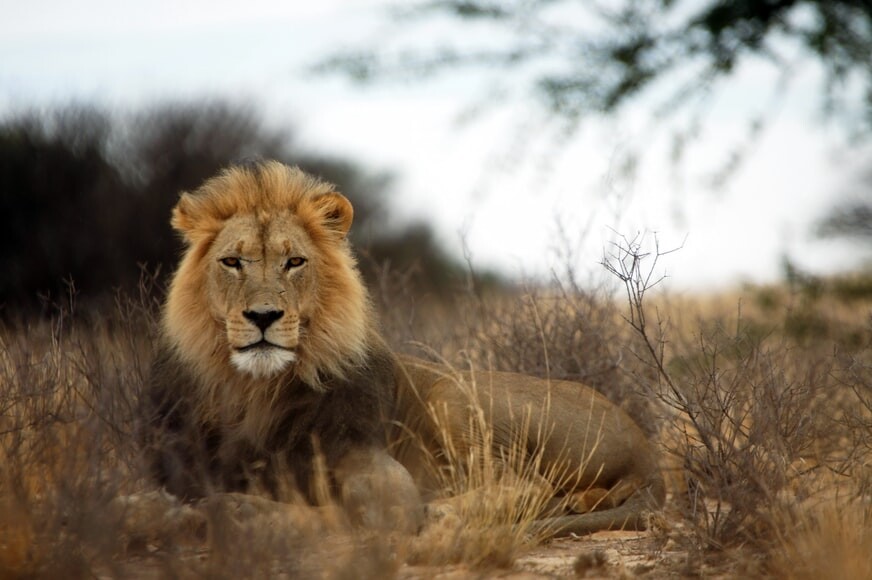15 Sassy South African Words Everyone Should Know

Hi! I’m Zanandi Botes, your Cracked contributor who lives all the way down in that African country where wild lions roam the streets, and everyone owns a pet giraffe. Kidding, although owning a giraffe would be pretty gnarly, and also, our Kruger National Park lions do escape from time to time.

You may have heard of us. Our most famous person ever — former South African President Nelson Mandela, who fought against Apartheid and became the first democratically-elected president of our country — apparently inspired you guys to coin a phrase describing your terrible memories and/or lack of general knowledge, a.k.a. the Mandela Effect. Wild. We don’t use that term, by the way. Our memories are amazing.
We have a whopping 11 official languages. Sure, it might sound like maybe one too many and possibly a little confusing, but most of the time, we understand each other just fine because down here in Mzansi — pronounced m-zhan-si from the Xhosa word “uMzantsi'” which means “south” — we speak our own melted Mzansi language. So if you’re ever lucky enough to visit our shores which are hella gorgeous, by the way, here’s a list of some excellent mouth sounds with rad meanings that’ll at least score you some brownie points with the locals.
Howzit! {how-zit}
Our way of combining “hi” and “how are you?” (or more specifically, “how is it?”) into one word that’s definitely not meant to be a question but just a simple and informal greeting. It’s one of the most famous South African slang words you’ll hear, and it’s a great example of how we literally melt words together. Also, we like adding the “z” sound to things because it just makes it way more fun to say.
Aikona! {eye-koh-na}
The Zulu word which may quite possibly be the best single word available for when you want to say “no” using the power of a thousand suns. Saying aikona to something is to refute it with such clarity and conviction that no one would dare contradict or speak out against you for fear of spontaneously combusting.
The English equivalent is probably somewhere between “hell no,” “over my dead body,” and “you must be really high if you think I’m falling for that.” It’s a great word to use when you think someone is trying to swindle you or when some delivery guy starts telling you how a vaccine gave him a second butthole.
Lekker {lack-err}
The opposite of aikona. One of the most common South African words, with many meanings. Traditionally, the Afrikaans word means “nice” or “good,” but it has since evolved into an all-rounder. It can mean “cool” as in “Those new shoes are lekker,” or it could mean “alright/okay” as in “That delivery guy claiming to have a second butthole was not lekker.”
It can also be used as an adjective to suggest a strong degree of something — like saying “really” — as in “These Western conspiracy theories popping up in Mzansi are lekker f*cked up.”
Tjaila {chai-la}
Also spelled “tjaile,” the word comes from the Xhosa “tshayile” and has been adopted and adapted by every other SA language. It originally means it’s time to stop working. Today we use it to say it’s time to go, as in it’s tjaila time, and when it’s tjaila time, you tjaila.
Ke sha’p {ke-shaap}
It’s what you say when you’re good. Can be used when someone asks you if you’re okay or if you need help with something or if you want something or if you’re lekker. Usually accompanied by throwing two thumbs up.

Eish {aysh}
A colloquial, all-around expression of frustration, shock, surprise, disapproval, even regret. For real, “eish” can be used for almost any scenario. Missed your flight? Eish. Another giraffe got hit by lightning? Eish. It’s the expressive filler equivalent of Italy’s “allora,” and can be used even when you don’t know what else to say.
And speaking of common fillers …
Ag {ax}
This one will require you to attempt the Afrikaans guttural “g” sound inherited from the Dutch:
“Ag” is usually said at the beginning of a sentence and is quite often paired with the English “man.” It’s the real filler equivalent of “allora,” for it can mean anything from “oh” to “so” to “oh well” to “oh brother!”
Braai {brr-rye} or Shisa Nyama {she’s-san-yah-mah}
What you call barbecue, we call “braai” in Afrikaans or “shisa nyama” in Zulu (which translates to “burn meat”). And it’s not just any lunch or dinner with some grilled meat. Oh no, a braai in South Africa is an event, and we tend to make a big fuss over it (but in a good way).
See, even though we braai every other weekend, it’s an honor and a real joy to do so each and every time. And it’s always better when the gathering is bigger because if a “people person” was a country, South Africa would be it.
Both “braai” and “shisanyama” are critical to know when you’re engaging with a South African, as the laws of Mzansi physics guarantee that you will be talking about having a braai or going to a shisanyama before you know it.
Ayoba! {ah-yoh-ba}
An expression that shows you are excited. Like, if a South African invites you to a braai, you better respond with a bolstering “Lekker! Ayoba!” It can also mean something is cool or that you approve of it. Like, after you’ve eaten the perfectly cooked meat from the braai you better tell a South African, “Now that was ayoba!”
We’re lowkey needy, okay?
Ubuntu {oo-boon-too}
You may know this one because it’s also the name of a Linux operating system, but in South Africa, it has an important meaning that’s been very much part of rebuilding our country following the horrors of Apartheid. “Ubuntu” is an extremely unique Nguni word (there exists no single-word translation for it). It comes from Old Africa, and it means “I am because you are.” It supports the philosophy of community and the importance of togetherness when it comes to our humanity.
“Shame” as in the English word, but pronounced as “shem” {sh-em}
We South Africans use the English word “shame” quite a lot to connect and express our sympathies toward one another. But we don’t stop there. We will “Ag shame” someone who’s sick, and we will also “Ag shame” cuteness. Yes, whenever we see a cute baby or puppy or a family of warthogs trotting through the bushes, we will throw out an “Ag shaaame” because apparently cute things have our sympathy.
“Shem” has evolved from “shame” and usually comes with a hint of humorous sarcasm. For instance, when a co-worker says they feel the absolute worst because they only managed to sleep seven hours the previous evening and not their usual eight, a South African will most likely respond with an “Ag shem.”
Zamalek {zah-ma-leck}
Derived from an Egyptian soccer club with the same name, Zamalek is Mzansi’s name for Black Label beer — a Canadian lager that was introduced here in the ‘60s and is one of our country’s biggest and most popular locally brewed beers today.
Babbelas {bub-ba-las}
From the Zulu word “ibhabhalazi” meaning hangover. So it’s best not to drink too many zamaleks at the braai lest you want to nurse a babbelas the next day.

Nou-nou {no-no} (Afrikaans) or Now-now (English)
A phrase that’s become a running joke as much as a staple in South African vernacular. It means “in due time” and should never be taken literally. If someone tells you that they’ll come over “nou-nou” or “now-now” it certainly does not mean they are actually coming now. It could mean they’ll be arriving in 10 minutes, and it could also mean they’ll be arriving next year at Christmas.
The ambiguity of the phrase is why we love it so much, and this is Africa. We do time differently here.
Saffa {sah-fa}
You might become so impressively well-versed in the vernac of the African country closest to Antarctica that you go back home, and adopt some of our colorful words and sayings, only for someone to one day turn to you and ask, “Excuse me, but I just heard you say ‘lekker!’ Are you a Saffa?”
To which you will, unfortunately, reply, “Eish, no,” because a Saffa is an ex-pat or, more accurately, a South African in the wild. You can usually spot them by following the scent of some lamb chops being braai’d, ayoba-style.
You can follow Zanandi on Twitter.
Top Image: Marco Verch, Thulani Godfrey Timba/Wiki Commons
